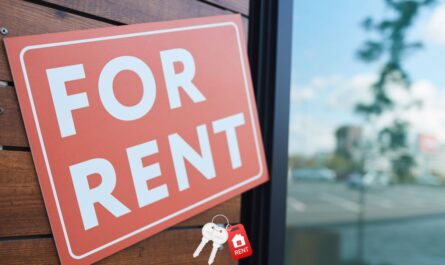Washington, D.C., is preparing for a significant shift as several new laws are set to take effect on July 1, 2025. Whether you’re a resident, business owner, or visitor, these changes will affect various aspects of daily life in the nation’s capital.
From changes in the workplace to adjustments in transportation, healthcare, and environmental regulations, it’s essential to understand the upcoming shifts and how they might impact you.
1. Workplace Regulations: More Employee Protections
The new laws aim to enhance protections for workers in Washington D.C., with a focus on improving working conditions and expanding rights. Some notable changes include:
- Paid Family and Medical Leave: Starting in 2025, employees will have access to more robust paid family and medical leave benefits. This law will ensure that workers can take time off for health reasons, family emergencies, or bonding with a new child, all while receiving compensation.
- Minimum Wage Adjustments: The District of Columbia is increasing the minimum wage again in 2025, continuing its effort to provide a livable wage for workers. The new rate will affect businesses and workers alike, requiring businesses to adjust payrolls to meet the new standards.
- Expanded Workplace Discrimination Protections: There will also be a broader scope of protections against discrimination in the workplace, focusing on ensuring equal opportunities for all employees, regardless of race, gender, sexual orientation, or disability.
2. Transportation: New Laws for Drivers and Pedestrians
Virginia Tightens Traffic Laws: Unbuckled Backseat Riders and Vehicle Owners Face Penalties
Washington, D.C., is also focusing on making transportation safer and more sustainable. Several new laws related to driving and public transit are set to take effect in July 2025:
- Congestion Pricing for Downtown: To tackle traffic and reduce pollution, a new congestion pricing program will be implemented in downtown D.C. This will require drivers to pay fees to enter heavily trafficked areas during peak hours. The funds raised will be reinvested into public transit and infrastructure improvements.
- Electric Vehicle Incentives: In an effort to reduce the city’s carbon footprint, new incentives for electric vehicle (EV) ownership will be introduced, including rebates for purchasing EVs and charging stations being installed throughout the city.
- Biking Infrastructure Expansion: D.C. plans to roll out more dedicated bike lanes and improve pedestrian safety measures. This will make the city more bike-friendly, reducing reliance on cars and promoting a cleaner environment.
3. Housing and Real Estate: Changes in Rental and Development Laws
Housing laws are also undergoing significant changes to address affordability and fair practices:
- Rent Control and Rent Increases: Starting in July 2025, there will be stronger regulations around rent increases. Landlords will face stricter caps on how much they can increase rents annually, making housing more affordable for tenants, especially in high-demand neighborhoods.
- Affordable Housing Initiatives: The city will introduce new initiatives to promote affordable housing construction, particularly aimed at helping low- and middle-income families. Developers will be encouraged to set aside a percentage of new housing units for affordable rentals, helping ease the city’s housing crisis.
4. Environmental Regulations: A Greener Future
Washington, D.C., is prioritizing sustainability with a new suite of environmental laws that will come into effect in 2025:
- Zero Waste Initiative: In line with other major cities, D.C. will require businesses and residents to implement a zero-waste strategy. The goal is to minimize landfill use and increase recycling and composting efforts across the District. New recycling mandates will also apply to food waste, furthering D.C.’s commitment to sustainability.
- Green Building Standards: Starting in 2025, all new buildings in D.C. will be required to meet enhanced green building standards. This includes energy-efficient designs, renewable energy installations, and water-saving technologies. The city’s focus on sustainability will not only help the environment but also reduce utility costs for residents and businesses.
5. Public Health and Safety: Improving Community Well-being
Public health and safety laws are also evolving with new legislation to improve community well-being:
- Expanded Access to Healthcare: D.C. will expand its healthcare initiatives, particularly focusing on mental health services, addiction recovery programs, and preventive care. The city aims to ensure that all residents have access to quality care, regardless of income.
- Enhanced Public Safety Measures: The District is implementing stronger safety measures to combat crime, including new community policing strategies and investments in mental health crisis response teams to provide assistance in lieu of traditional law enforcement in certain situations.
6. Consumer Protection: Protecting D.C. Residents
New consumer protection laws will help ensure that residents’ rights are respected across various industries:
- Price Transparency Laws: Businesses will be required to provide clear pricing information, particularly in industries like healthcare, utilities, and housing. This will allow consumers to make more informed decisions about their spending.
- Consumer Data Protection: As data breaches and privacy concerns continue to rise, D.C. will roll out stricter regulations for companies that collect and store consumer data. New laws will ensure that personal information is protected, and that businesses are held accountable for breaches.
Conclusion: Are You Ready?
As July 1, 2025, approaches, it’s crucial for residents, workers, and businesses in Washington D.C. to familiarize themselves with these new laws. Whether you’re a small business owner, a driver, a tenant, or a worker, these changes will affect your daily life, and being prepared can help you navigate the shifts smoothly. The city is embracing a future of fairness, sustainability, and equality, and you’ll want to make sure you’re ready for these changes when they take effect.
If you’re unsure how these laws might impact you personally, consider reaching out to local experts, whether that be legal advisors, financial planners, or city representatives, to help you adjust to the new regulations. Washington D.C. is evolving, and with a little preparation, you can ensure you’re fully compliant and ready for the future.




